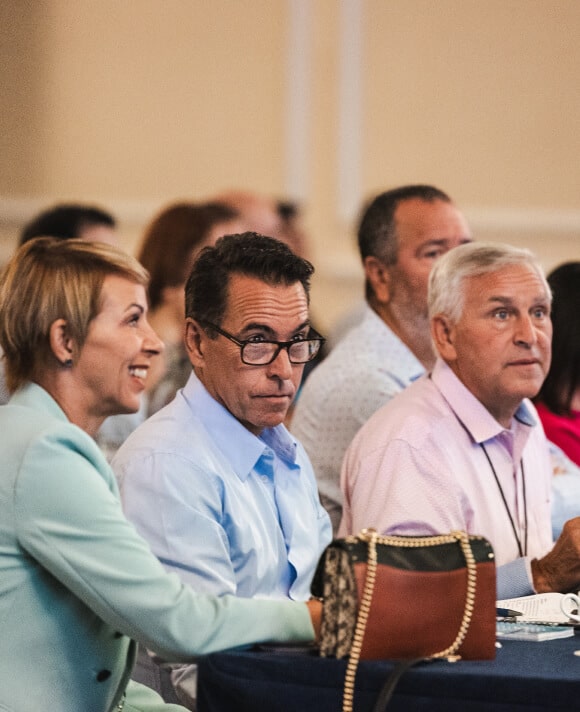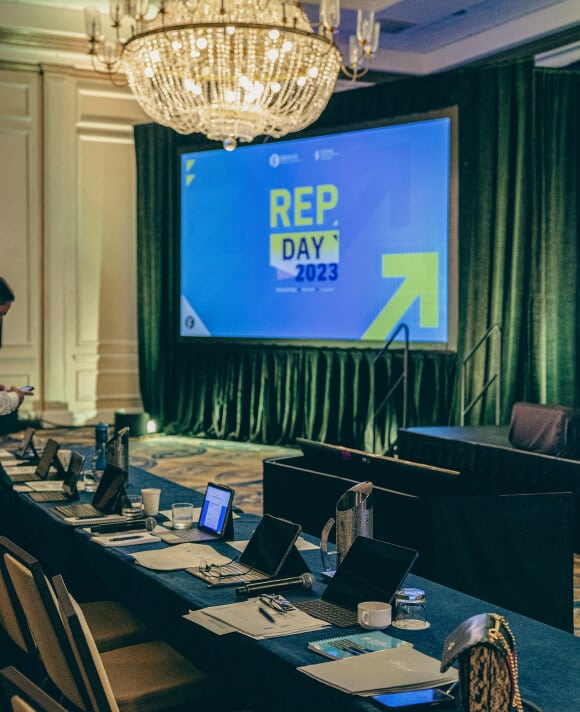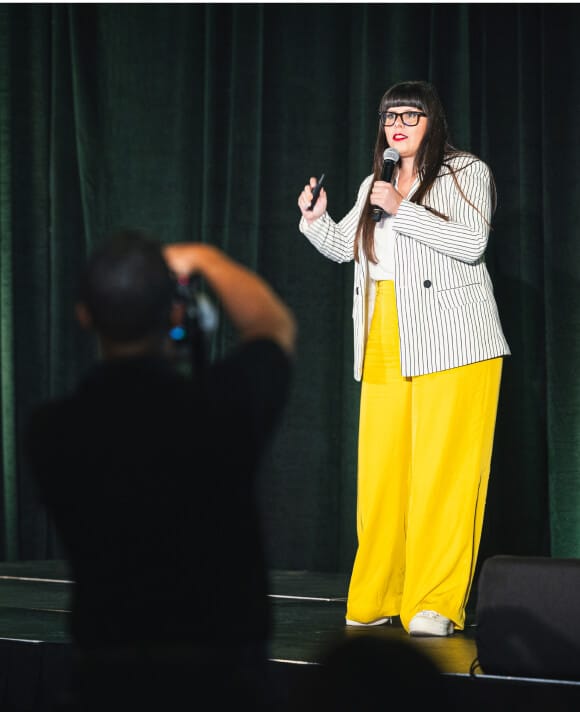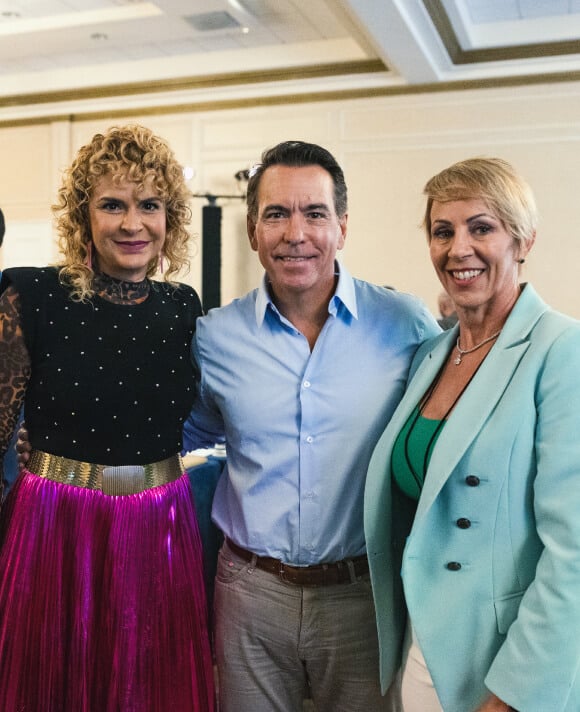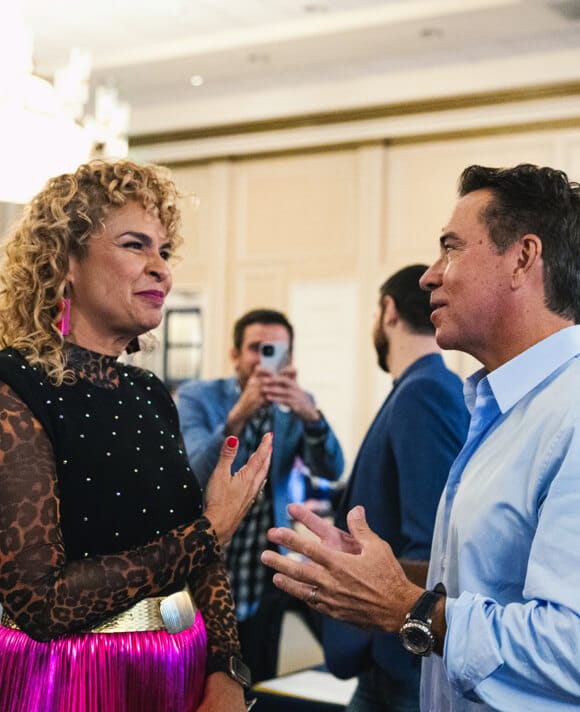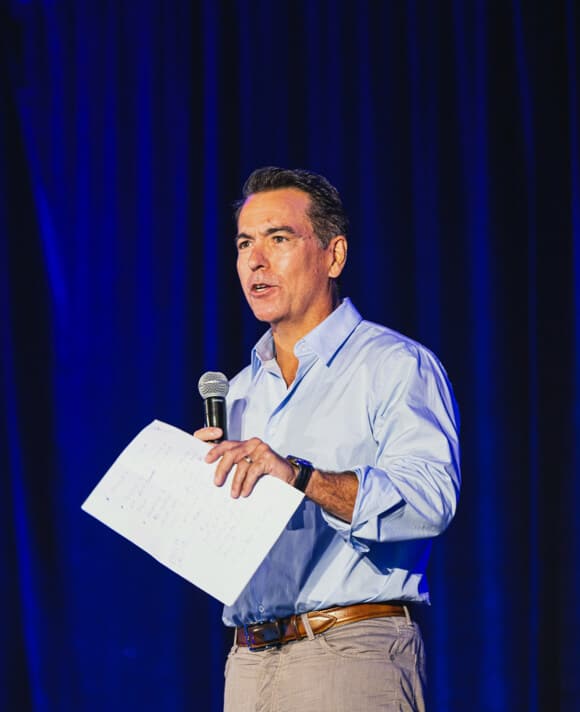Interview by Pedro A. Guerrero
PHOTO + VIDEO BY Cass Davis
Design by Arturo Magallanes
Words by Michele Cantos Garcia
ORLANDO BRAVO —“Wall Street’s Best Deal Maker”—has overseen over 440 software acquisitions with a transaction value of over $250 billion at Thoma Bravo, the first-in-class private equity firm he founded in 2008.
Hailing from Mayaguez, Puerto Rico, the Boricua billionaire is a household name on the island, but not just for his net worth or “good luck” as Bravo calls his enormous financial success. Since 2017, he has been leading disaster relief efforts post-Hurricane Maria. In 2019, he committed over $100 million to provide access to opportunities for young adults in Puerto Rico.
Today, as founder of the Bravo Family Foundation, he stands as a passionate philanthropist on a mission to bring opportunity to Puerto Rico.
The Hispanic Executive team had the pleasure of learning more about Bravo’s story when we interviewed him on The Latino Majority podcast, and on September 14, 2023, on the day of the foundation’s latest Rising Entrepreneurs Program award ceremony, we were invited to conduct a follow-up interview on-site in San Juan.
Before the event, our Publisher, Pedro A. Guerrero, sat down with Bravo at the Fairmount El San Juan Hotel to gain deeper insights into his philanthropic strategy and vision for the future.
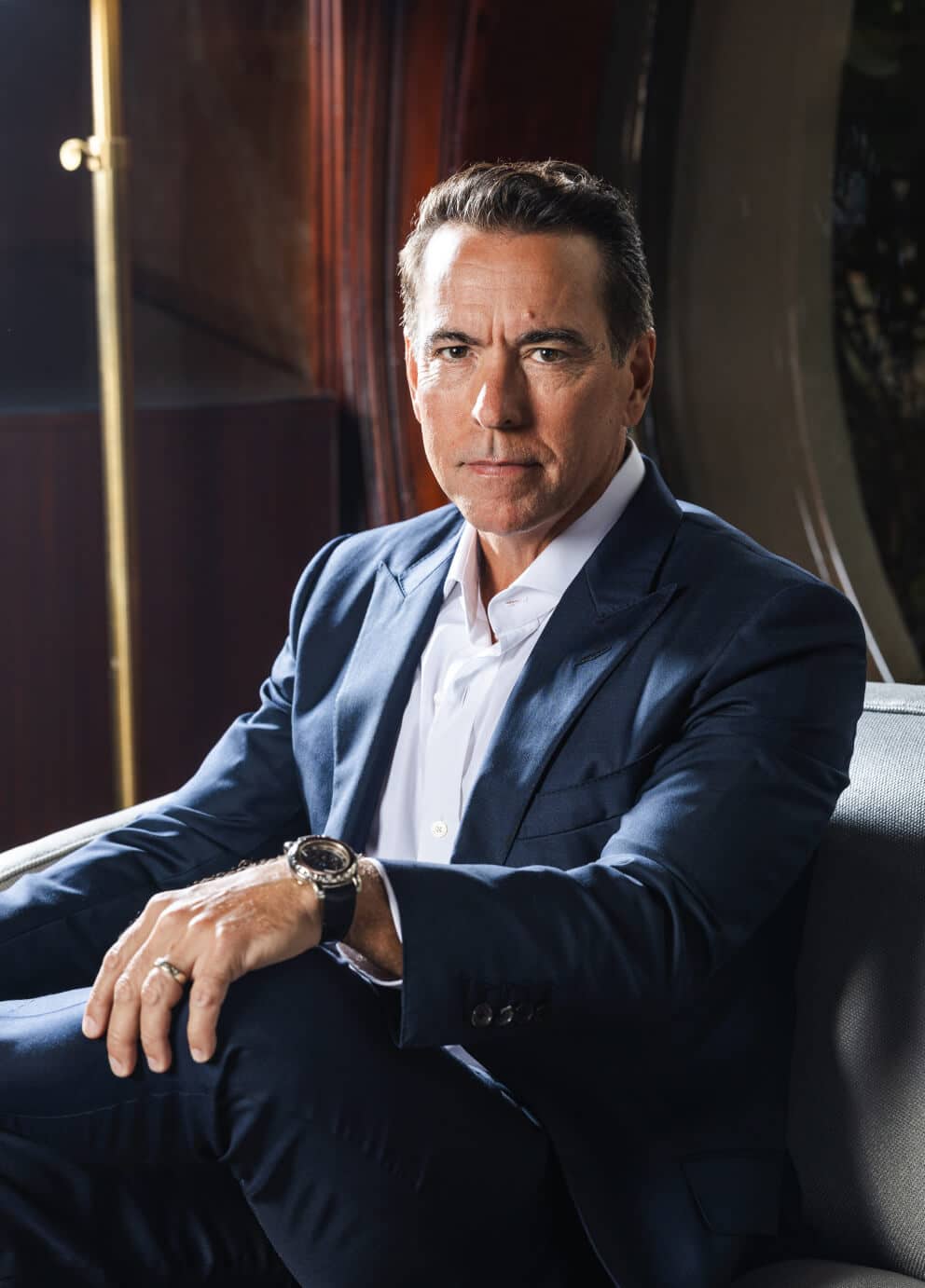
“I’ve reflected a lot on this, and I’ve become a believer that there are moments that come to every individual where it is up to them to do something about it.”
Orlando Bravo
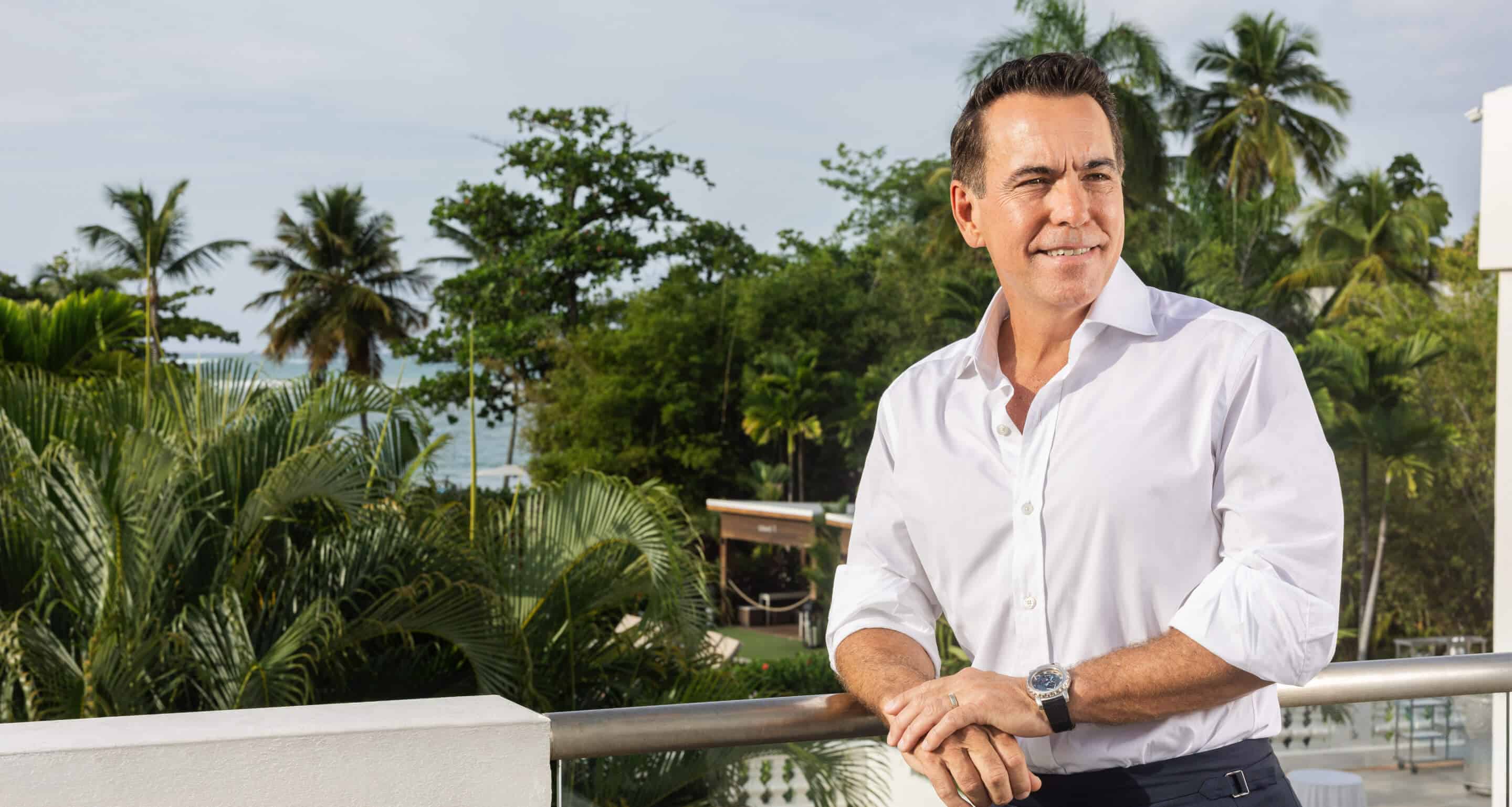
“I’ve reflected a lot on this, and I’ve become a believer that there are moments that come to every individual where it is up to them to do something about it.”
Orlando Bravo
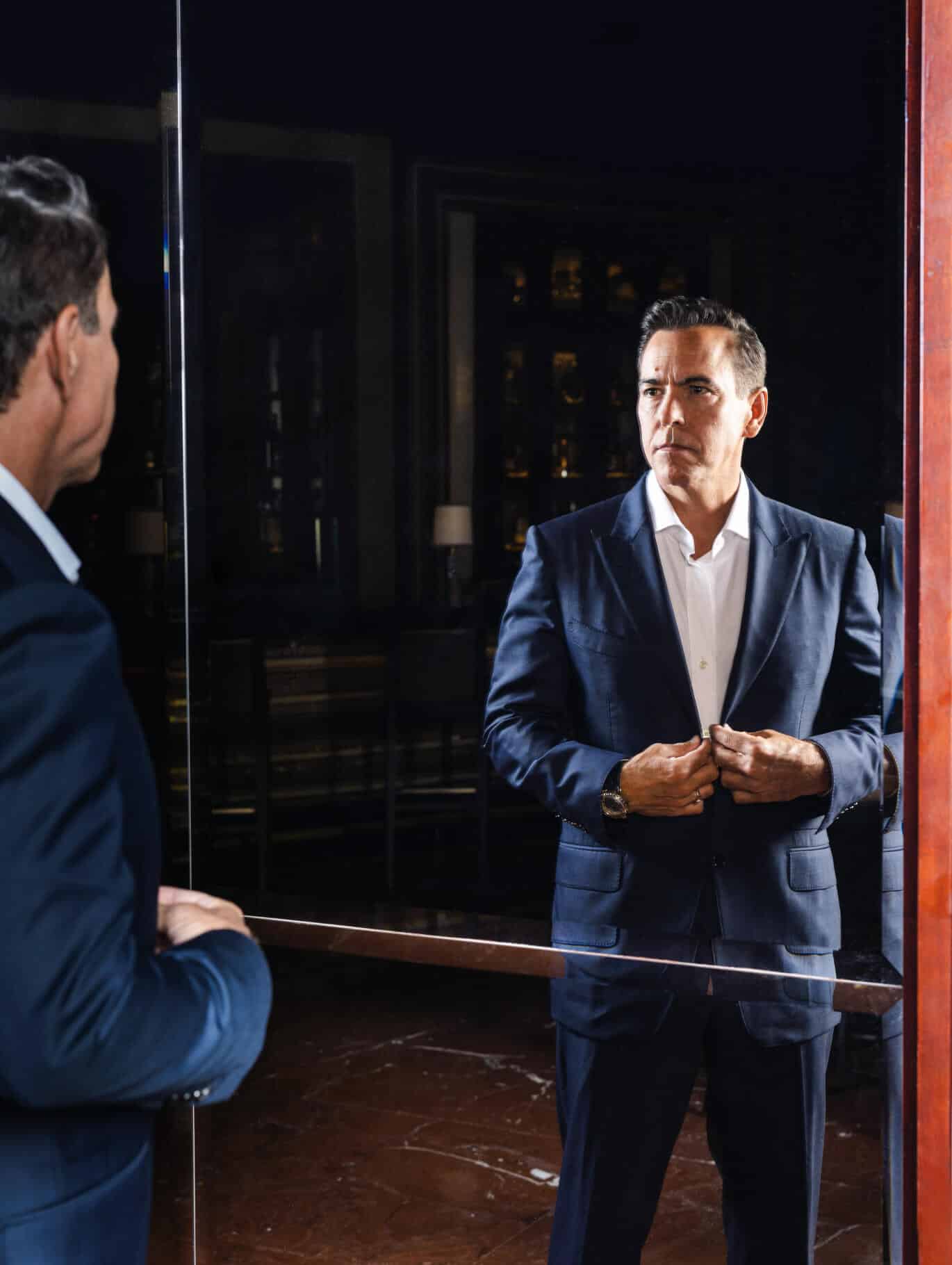
The devastation of Hurricane Maria accelerated the Bravo Family Foundation’s formation in 2017, but I imagine this foundation is something you’d been thinking about for years. Can you tell us about its pre-traction period, when it was just a dream and a nascent vision?
The Bravo Family Foundation and its Puerto Rican efforts did not start with a grand plan by me or any of us who lead the foundation. It was a moment in time.
[When] Hurricane Maria hit Puerto Rico, I had just come back from a trip to Asia to San Francisco, where I used to live, and I was seeing all of these news reports about how governmental efforts could not get to certain towns because they were impossible to [travel] to.
My brother befriended a reporter who mentioned that there was a town near where I grew up in Mayaguez with a shelter [housing] thirty-five people that had two days left of food and water. [That] hit me really hard. It was a very emotional moment and what I thought about was, “I can do something about this, even if I help one person, even if I help one shelter, that’s enough. I have to do this.” It was a moment where I could do something about it and it was even bigger than that.
I’ve reflected a lot on this, and I’ve become a believer that there are moments that come to every individual where it is up to them to do something about it. And if they don’t do something, nobody else will. And we started [without] knowing what to do.
I had never been engaged in hurricane relief efforts, but we got there within a day with food and water. When we got to the airport, there were all of these other towns looking for help, and there began our mission, which was first a humanitarian mission.
It allowed me to reconnect with many of my high school friends in person and it allowed me to see a beautiful side of the island, which [includes] a lot of smart people, a lot of hardworking people, and a lot of hope with lack of opportunity.
Tell me more about those first years of the foundation. What did you learn about Puerto Rico, and how did these years and lessons shape the foundation and its current focus on young people?
[While] we worked on Hurricane Maria, I was in the town of San Germán delivering relief goods, mainly food and water [as well as other supplies that] the town needed, with the mayor of San Germán and a lot of the local community leaders. A young man came over to me and he said, “I just had a baby, I got married three years ago, I’m a salesperson, [I have] a great background, [and I’m] hardworking.”
He could not work because nothing worked. The infrastructure didn’t work. Puerto Rico was down. That’s just not right. That is absolutely not fair. Some of us are incredibly lucky and others are not. I [asked], “Where can we contribute long-term to Puerto Rico?” And we [concluded with] entrepreneurship. We know something about that.
I’ve been in the world of entrepreneurship for almost thirty years, right after [graduating from] Stanford, with all kinds of opportunities in one of the best places for entrepreneurship. Before I moved to Miami, I was in San Francisco for almost twenty-five years doing what I do now. So, what if we can [take] some of our principles, some of our people, and some of our leaders, and combined this with the local talent and local leadership?
Can we provide opportunities for talented young adults, for both personal and professional growth, that otherwise is not there? So, we embarked on this and we built it. We’ve been building program after program since then.
Watch the Full Interview
As a private individual who is committed to the island’s revitalization and long-term economic health, can you tell us more about how private individuals and corporations can best create change together?
You have to look at your core competencies. An individual [and a] corporation can [ask], “What am I really good at? And can I apply what I’m good at to philanthropy?” Basically, take your approach to business and corporations and [ask], “Can I do that with a bigger social purpose and a longer-term social purpose?”
[Then ask yourself] what is most important to you as an individual or even as a company and an enterprise? What do you stand for? What in your history has made you very passionate about certain things?
When you combine the two, it is one of the greatest gifts that you can both give and give to yourself. It creates so much meaning.
From what you understand now, are there other pressing needs in Puerto Rico that you think individuals and corporations should be supporting?
All kinds of needs, [including] poverty, education, health care and access to it, and environmental needs. If you try to do it all as an individual or foundation, you’ll get to none. However certain organizations and individuals have core competencies in each of these areas, [that’s where they can] really focus.
Our core competency and what we [have] been trying to execute with the now over one-hundred people working with the Bravo Family Foundation is [providing] opportunities for talented young adults that otherwise wouldn’t have those opportunities, like rising entrepreneurs.
Second, [we need] community leaders—exceptional community leaders. Social leaders are entrepreneurs, right? They have social mission instead of [doing something for] capital gains. [In] that program, we enable talented young adults to feel really good about where they’re from, to develop tourism, to develop initiatives so these communities can be self-sustaining, and actually grow instead of shrinking and going away.
And third, one of my favorite programs is Empowering Young Entrepreneurs, where we help high school students mainly in public schools and disadvantaged communities. We have them dream of how they can become an entrepreneur. What I have seen is absolutely amazing. Getting a young individual to know why learning math and why learning how to read and writing is important.
But if you think about learning and teaching entrepreneurship, the individual who becomes [one] begins to dream about what is possible, about how important they are in the world. They get incredibly creative, and I feel that that’s another just phenomenal program.
The magnitude of your success has been extraordinary. What is one piece of advice you would give to some of these emerging entrepreneurs, students, or even well-established Latino entrepreneurs with goals to hit the level of success you’ve seen in the next couple of years?
Get lucky. [We] also spoke about that in the podcast. I really mean it. It’s 90-plus percent luck, [being in the] right place at the right time, having the right mentors, and listening to the right people. Of course, you have to keep your heart open, your eyes open, and your ears open for those opportunities. But besides the luck? Step by step, pasito a pasito.
Every single day, no matter what stage of your career that you’re in, what do you want to accomplish that day and be extremely detailed oriented and disciplined? I actually was like that as a little kid, and my mom helped me be that way. She put that sense of discipline and structure in my life, but now I do the same. I wake up and it’s like, let’s go.
It takes time to think big; [just] because we are Latinos doesn’t necessarily mean that our businesses needs to be focused only on the towns or places we’re from. Think bigger than that and that will enable you to compete. You can compete in a much broader market and economy.
So, what’s the next step, the next pasito for the Bravo Family Foundation?
On the Rising Entrepreneur Program, we now have a proven method. [We are asking] “how many of those small companies and entrepreneurs can take it to the next level and raise real venture capital to have a much bigger runway to build their businesses?” That is number one.
On the Community Leaders Program, [we are asking] “can they begin to bring volunteer tourism into those communities to really inspire young people and show that these programs are working and [that] those young people are getting access, they have jobs, their communities are important? And how many of those kids can start pursuing bigger dreams? We’re measuring that [against] the current path that they would otherwise be on.
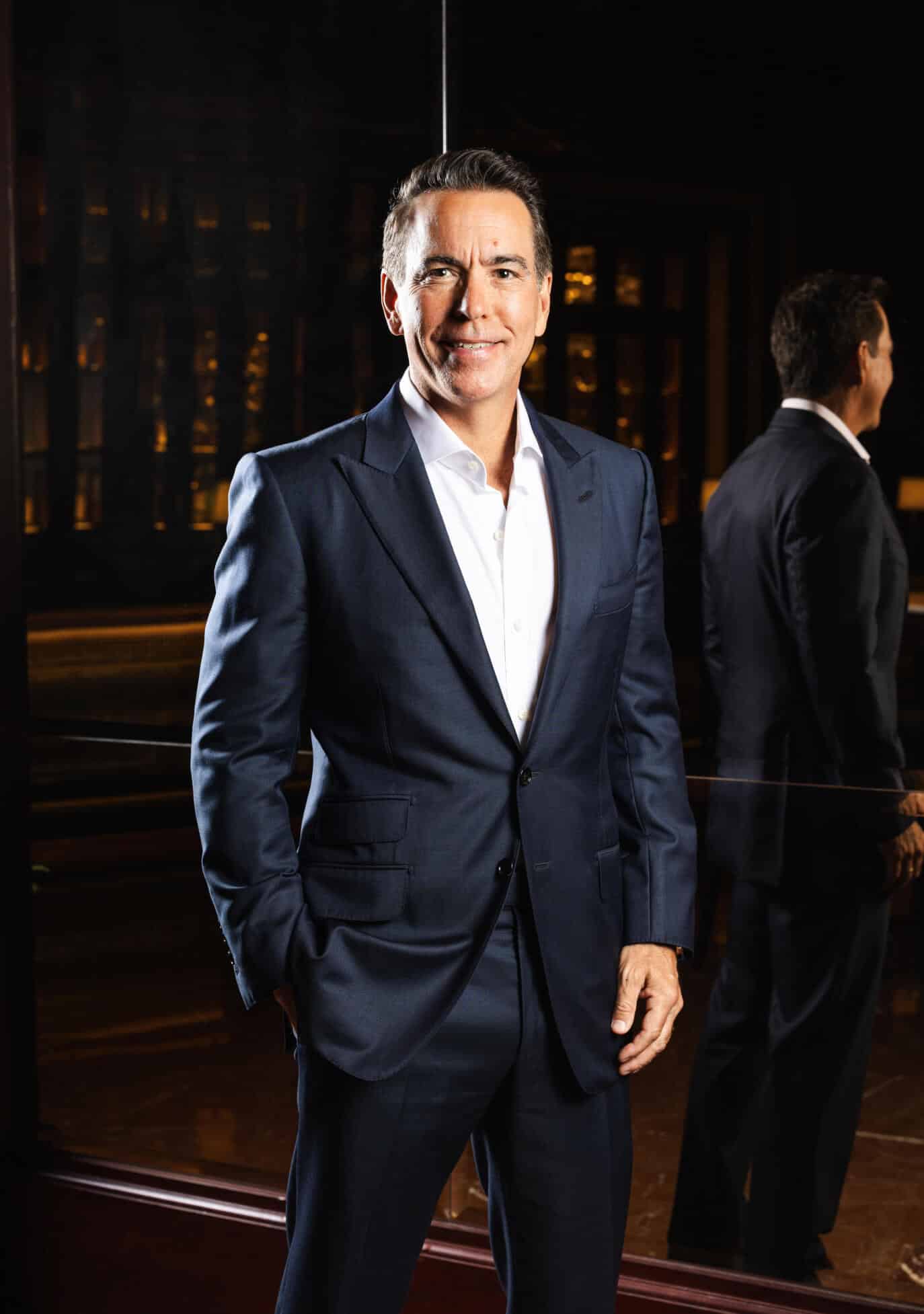
Orlando Bravo
“It’s 90 plus percent luck, [being in the] right place at the right time, having the right mentors, and listening to the right people. Of course, you have to keep your heart open, your eyes open, and your ears open for those opportunities. But besides the luck? Step by step, pasito a pasito.”
And for Thoma Bravo?
We’re going to keep growing Thoma Bravo. We’ve done a lot of things over the last twenty-five years, and I always tell our team that we’re [just] getting started.
And it’s the same as [our] philanthropy because we depend on these amazing young people who are going to be the future leaders of the firm we already have. They’re going to do things a lot better than we are, just with the same philosophy and set of values.
This interview has been edited for length and clarity.
Boricua to Boricua:
Behind the Scenes with Orlando Bravo
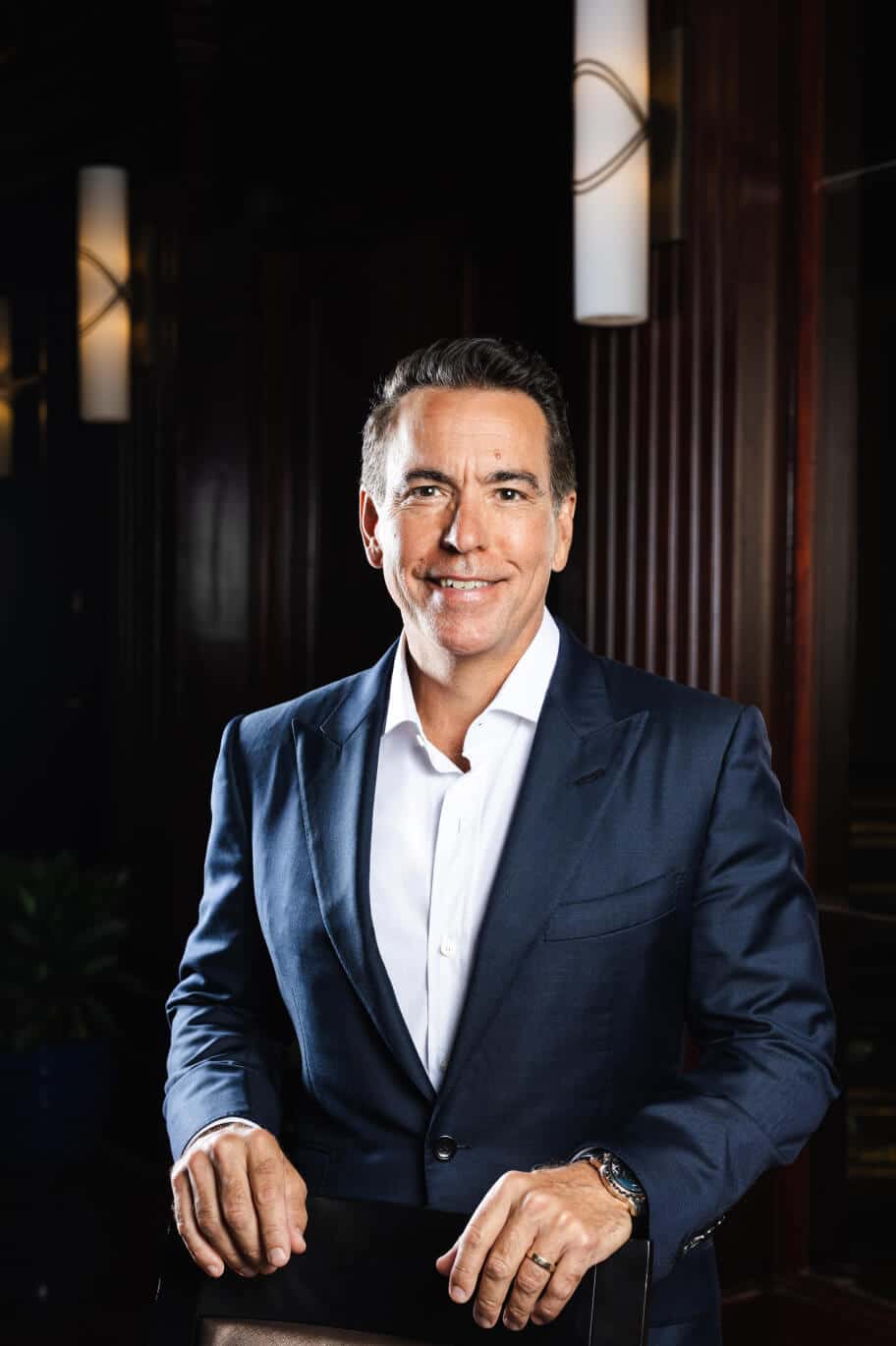
Credits
Interview
Pedro A. guerrero
Editor
Michele Cantos Garcia
Photo + Video
Cass Davis
Design
Arturo Magallanes
web development
Jose Reinaldo Montoya
Hair + Makeup
Wanda Montez
producer
Vianni Lubus
